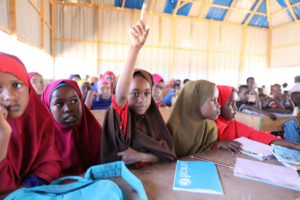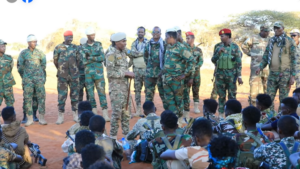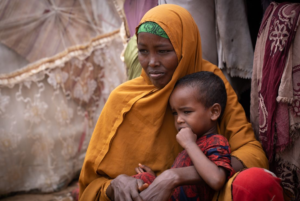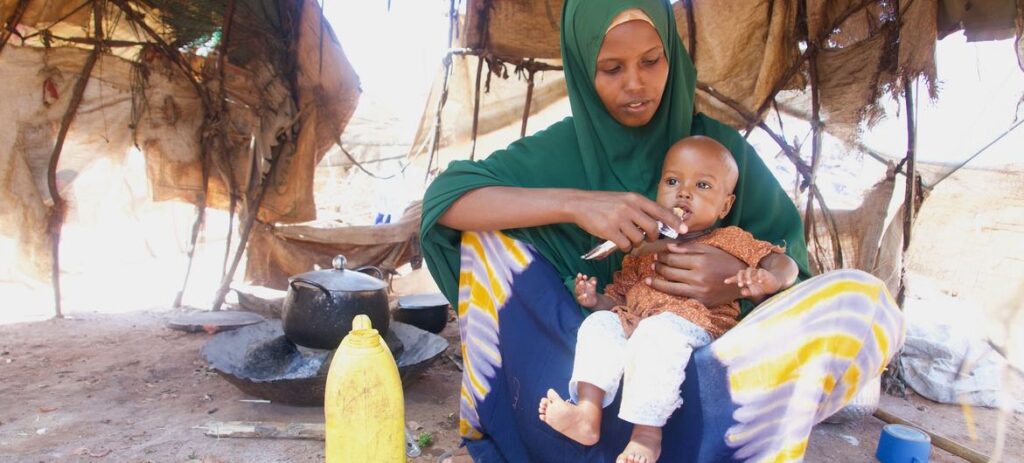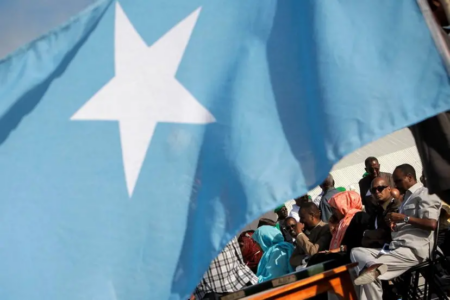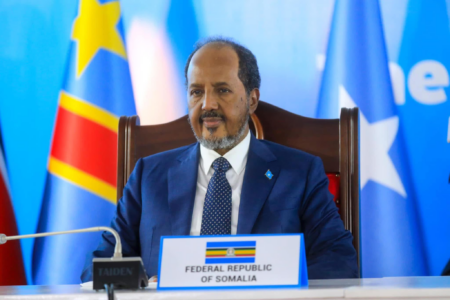The United Nations Office for the Coordination of Humanitarian Affairs (OCHA) has raised serious concerns over escalating humanitarian needs in Somalia, warning that funding shortages are pushing the country’s most vulnerable populations closer to disaster.
Funding Shortages Deepen Somalia’s Food and Health Crisis
According to a statement issued on Tuesday, Somalia is already grappling with a severe food security emergency, with over 4.6 million people facing acute hunger nationwide.
Additionally, 1.8 million children under the age of five are expected to suffer from acute malnutrition in 2025.
OCHA revealed that food assistance has been cut by more than 50% compared to the same period last year.
The consequences are widespread, with over 150 clinics affected across Somalia in the first half of this year — leaving hundreds of thousands without access to basic health care.
Meanwhile, water, sanitation, and hygiene (WASH) programs remain critically underfunded, receiving only 6.5% of required funding, compounding public health risks.
Children at Risk Due to Funding Shortages
The situation is particularly dire in Middle Shabelle, where more than 28 nutrition sites could shut down by the end of the month.
These closures would drastically limit access to nutrition services for at-risk children, pregnant women, and nursing mothers in a region already suffering one of Somalia’s highest malnutrition rates.
In Banadir region, over 12,700 children with moderate to severe malnutrition, including 1,100 children at risk of death, are expected to lose access to life-saving treatment as 20 supplementary feeding sites face imminent closure.

Health System on the Brink
In South West State, the number of mobile health teams has dropped from 74 last year to just 25 in 2025. In Puntland, 79 health facilities — including all 29 public health units — have been forced to shut down since the beginning of the year, according to OCHA data.
This deterioration in Somalia’s fragile health infrastructure highlights the devastating impact of funding shortages on communities that depend heavily on humanitarian support.
Humanitarian Agencies Forced to Reprioritize
Due to funding shortages, humanitarian organizations are being forced to scale back or reprioritize their programs.
OCHA reported that Somalia’s 2025 Humanitarian Response Plan, valued at $1.4 billion, is only 15% funded so far — with just $222 million received.
Worryingly, the two most critical sectors — food security and nutrition — have received only 5% and 3% of their required funding, respectively.
Urgent Call for International Support
OCHA warned that without immediate and sustained financial support, the humanitarian situation in Somalia will deteriorate further, potentially resulting in avoidable suffering and preventable deaths.
“Somalia is approaching a tipping point,” the agency said.
“Millions of lives are at stake, and the window to act is closing rapidly.”
Humanitarian experts continue to urge the international community, donors, and development partners to urgently increase funding to prevent a worsening crisis.
Especially in the most drought-affected regions of southern and central Somalia.
